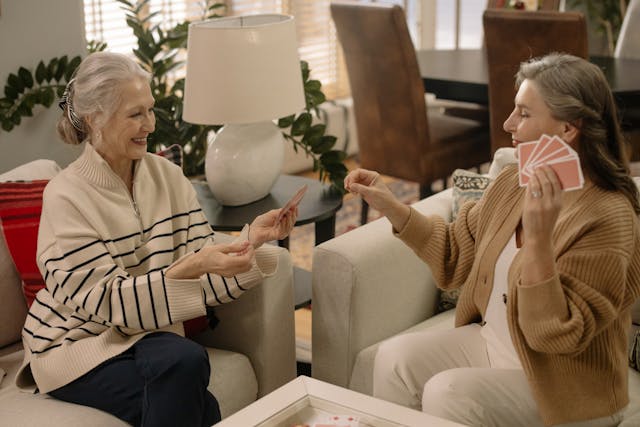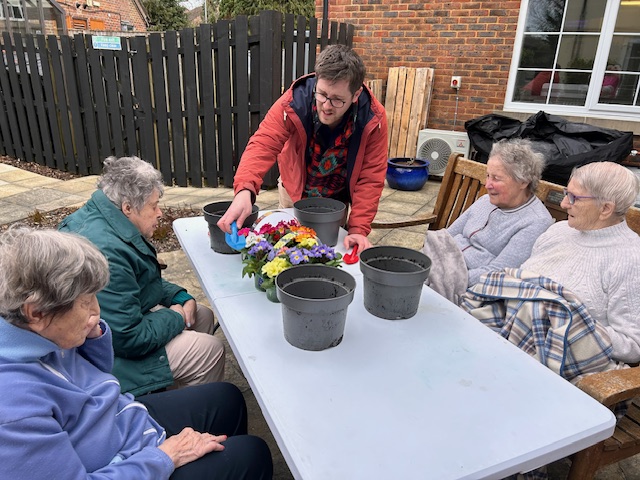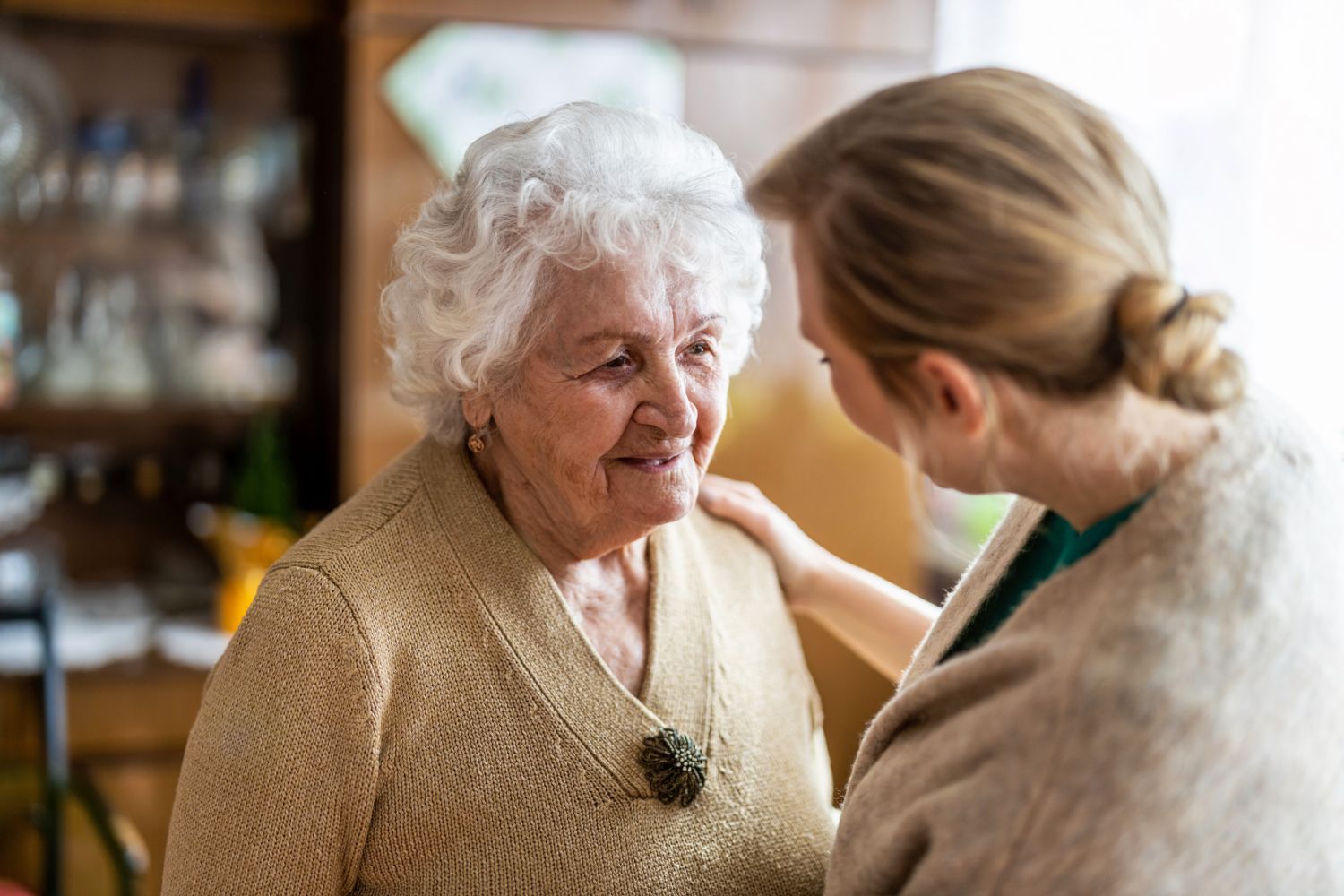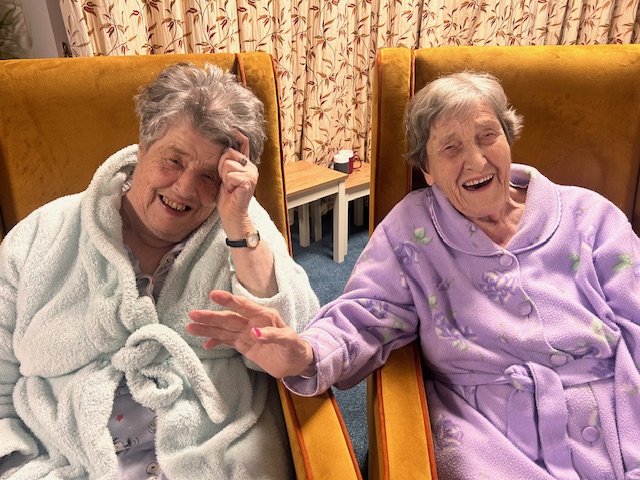The Importance of a Dedicated Dementia Unit in a Care Home

It is important when caring for dementia residents that there is a dedicated unit for this purpose, and here is why.
The physical environment in which those with dementia live in can impact them immensely. If a care home has been designed to be dementia friendly, it has the power to significantly improve an individual's quality of life.
From assistive equipment down to bright-coloured signage, there are many things that must be considered by a care home offering dementia care; these elements play an important part in supporting people living with the condition.
Dementia and its progressive nature means that each person living with it experiences a unique journey. Typically, however, this gradual condition does usually mean that health, medical and well-being requirements increase over time. To begin with, a resident may need minimal assistance with daily personal tasks. This can, as time passes, transition into needing around-the-clock care, supporting a variety of tasks such as eating, communicating, medicine management and fine-motor activities. A dementia-friendly environment brings an abundance of benefits; below are our top 7 recommended ways this can be achieved.
7 Reasons Why a Dedicated Dementia Unit is Important
- Safe Dining Areas
Dementia units should have dining areas that are recognisable, easy to navigate and have a clear lay out. Dining in this thoughtfully designed space will encourage independence and increase residents confidence. Additionally, we understand the power smells can have and how it can evoke positive feelings and memories as well as stimulate appetite.
A safe dining area will have considered:
- Ensuring the table is free from clutter and mess
- Supplying easy to hold cutlery and plates with a lip
- Avoiding using heavily patterned items and furnishing
- Playing soothing music during mealtimes
- Removing / minimising distracting background noises
- Comfortable Bedrooms
Bedrooms should promote calmness and encourage a good night's sleep. They should also be free of clutter, easy to navigate and safe. Those living with dementia may need help with finding and recognising their bedroom, using clear signage around the home can help navigation and encourage independence.
A dementia friendly bedroom will have considered:
- The ease of getting into or out of bed, and assistive equipment where possible
- An accessible toilet
- Devices that tell the date and time and are easy to read
- Clear space for daily tasks, such as getting dressed
- Accessible Bathrooms
It is extremely important for a bathroom to be a safe place for a person with dementia to use. An appropriate bathroom can help a resident with dementia to maintain their dignity and independence with personal care.
An accessible bathroom will have considered:
- Protection against scalding
- Reducing the risk of falls
- Floor colour perception
- Calming and non-confusing decor
- Landscaped Gardens
It is known that individuals with dementia are less likely to become agitated and distressed if they have regular access to fresh air and a quiet space away from others as needed. Just like all other living spaces, the garden area should be safe, secure and encourage independence for all abilities.
A safe, landscaped garden will have considered:
- Accessibility and ease of navigation suhc as use of pathways
- Ensuring the garden area is well-maintained and clear of mess
- Including multiple seating options
- Including sensory stimulation such as different smelling plants and a herb garden for touch
- Eliminating hazards
- Encouraging outdoor activities such as watering the plants and bird watching
- Appropriate Lighting
Considerate lighting will help individuals with dementia see where they want to go and to identify rooms, equipment and signs. It helps residents to see other people's faces and body language easily as well as encourage group activity participation.
A home with appropriate lighting will have considered:
- Introducing natural sunlight by opening curtains and ensuring windows are clear
- Making light switches clear and easy to use
- Implementing automatic light sensors where possible
- Considerate Noise Levels
A dedicated dementia unit will ensure noise levels are reduced and the space has been carefully designed; using noise absorbing materials, and the thoughtful use of decor and furnishings can all help to control noise levels.
A home with considerate noise levels will have considered:
- Incorporating materials that absorb sound, such as carpets and curtains
- Reducing and minimising background noise
- Ensuring residents receive regular hearing tests
- Providing quiet areas for residents which they can use often as desired
- Assistive Technology
Technology can be used in a variety of ways to help people with dementia in their daily living. From stair lifts to flood detectors, there is a multitude of assistive technology that can help aid day-to-day life for those residing in a care home.
A care home implementing assistive technology will have considered:
- Technology that aids memory problems
- Communication, including speech and hearing
- Using equipment and technology to assist mobility
- Safety inside and outside the home
- Implementing technology that helps maintain independence
- Facilities that provide opportunities for socialising
Prioritising Dementia in a Care Home
A considerate care home will strive to create a safe and homely atmosphere where residents feel safe and are encouraged to be as independent as possible. In addition to the above, the main elements a care home will offer residents living with dementia are:
- A Safe Environment
A considerate care home should strive to create a safe and secure atmosphere. A warm, welcoming and easily understood environment is pivotal to both dementia residents and their loved ones, providing reassurance to all.
- Engaging, Accessible Activites
A care home offering dementia care should encourage inidividuals to continue doing what makes them happy, whether it’s enjoying a much loved movie or taking part in an arts and crafts session. Activity Coordinators should ensure the Activities Programme on offer to residents is engaging and accessible for all abilities, but also includes forms of reminiscence such as creating memory boxes, hosting historical talks, and encouraging singing and dancing.
- Professional, Experienced Staff
A care home should carefully select a dedicated team of health and social care professionals to look after all residents, and ensure there are full-time staff onsite who are available around-the-clock and who are qualified and experienced in providing specialist dementia care.
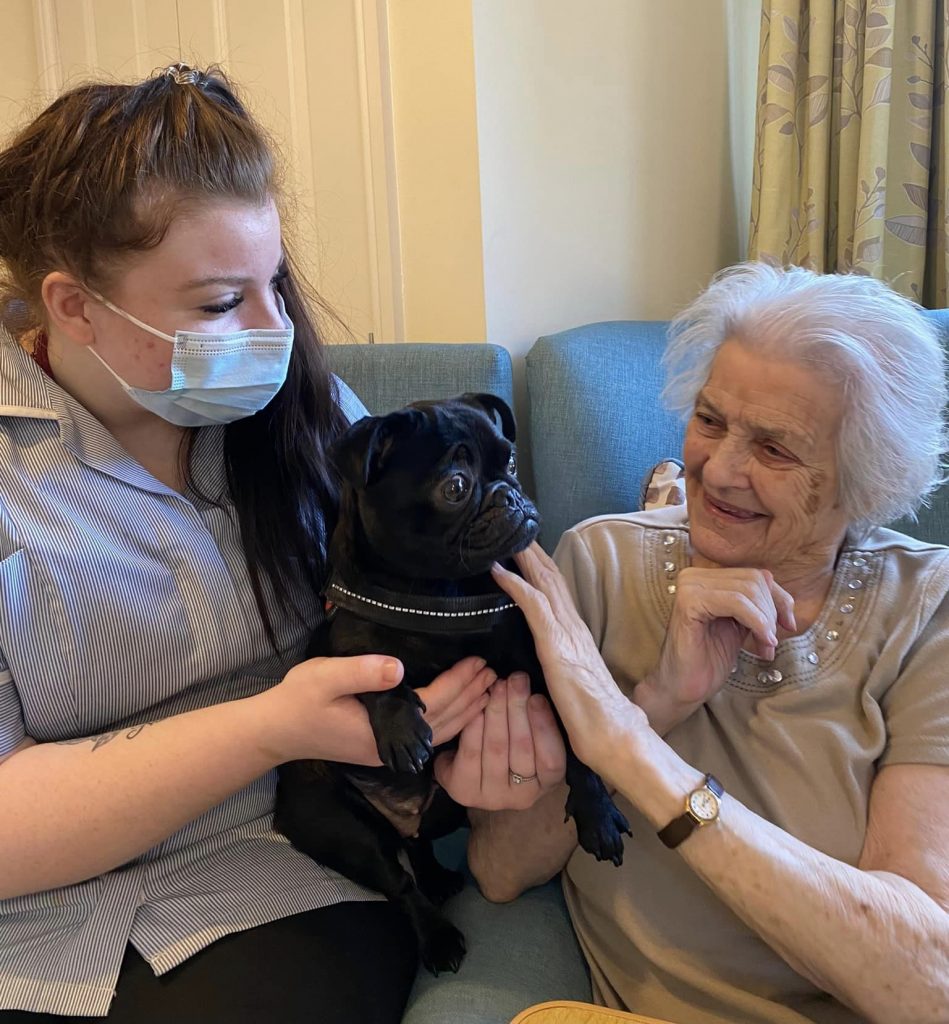

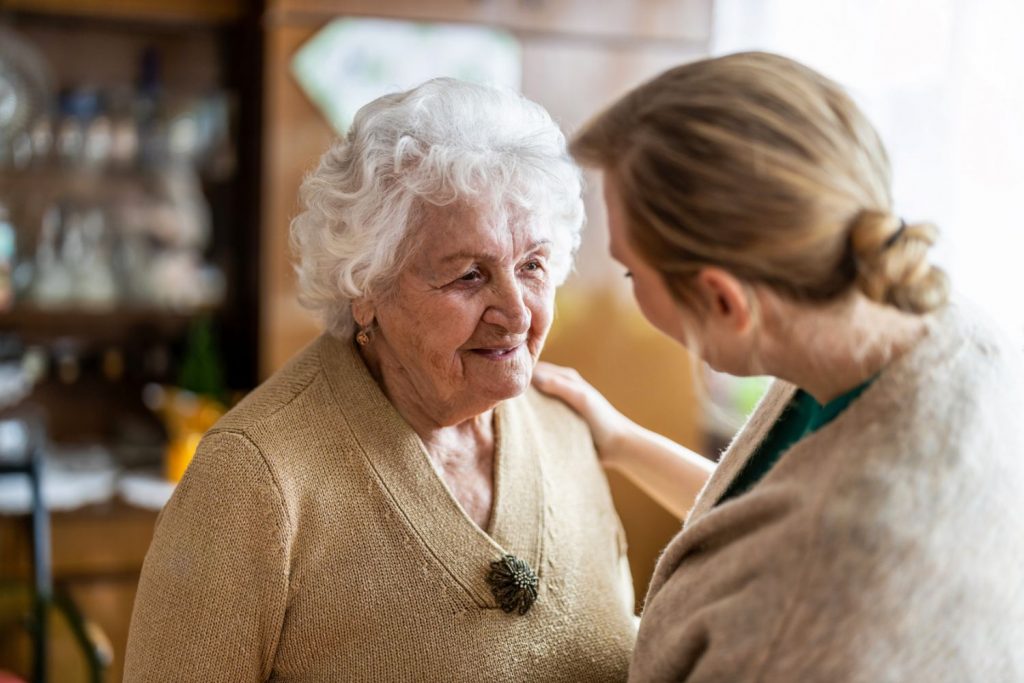
Dementia Care at Oakdene
We are proud to offer low-level dementia care at our care home that has been thoughtfully designed to provide a safe, caring and welcoming atmosphere for those living with dementia as well as our other residents and their loved ones.
“We chose Oakdene for some respite care for my Dad who has Alzheimers Disease. From the initial point of contact through to admission, the team were responsive, caring and very flexible. During his stay, the care my Dad has received has been of a high standard, with good communication at regular intervals. Despite the Covid restrictions, we are able to visit him and take him out for walks. The home is warm and friendly, spotlessly clean and very calm, even when the staff are very busy. It has given us great comfort to know Dad is cared for and looked after here.”
Review from S P, Daughter of Resident via carehome.co.uk
Our staff have undergone dementia care training, and we take great pride in providing each resident with the highest level of care and respect. We strive to provide an environment that allows individuals to live a happy and fulfilled life. Our purpose-built home was designed to support those who reside with us. This wonderful space allows residents to live safely and happily with the reassurance that support is available whenever they need it.
Here To Support You
From initial diagnosis of dementia through to ongoing management of the condition, care homes are equipped to provide medical and well-being support to both residents and their loved ones, and Oakdene is no exception. If you have any questions regarding Dementia Care at Oakdene Care Home, we welcome you to get in touch with our friendly team.
